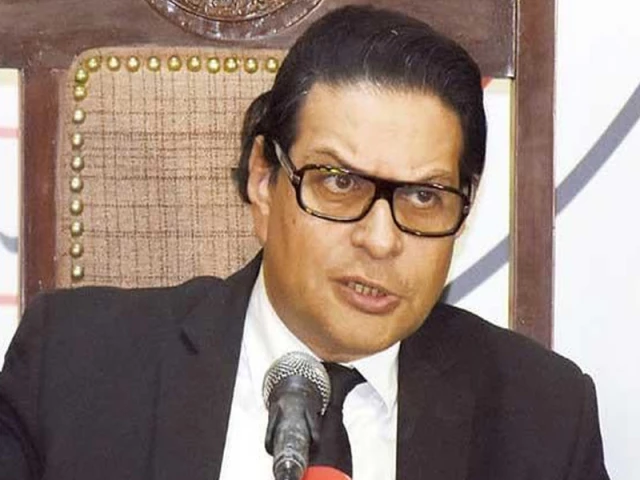LAHORE:
The PTI confronted significant organisational changes Tuesday as Secretary General Salman Akram Raja announced his resignation and former Punjab leader Hammad Azhar withdrew from contesting a crucial Lahore by-election.
Raja’s departure from the secretary general position stems from what he characterised as irreconcilable differences regarding his responsibilities within the party structure.
The senior lawyer revealed he had requested PTI founder Imran Khan to relieve him from the duties through attorney Ali Bukhari the previous week. Imran Khan initially rejected the request.
“My life is an open book, and I cannot compromise on intellectual and financial integrity,” Raja stated in a social media post, indicating that recent circumstances had forced his decision.
Despite stepping down from the administrative role, he pledged to continue providing pro bono legal representation for the party. The resignation exposes growing tensions within PTI’s leadership hierarchy, particularly over strategic direction and individual roles.
Raja, who describes himself as neither a conventional politician nor landowner, emphasised his family’s unwavering support to the PTI despite mounting political and economic pressures.
Meanwhile, Azhar’s withdrawal from the NA-129 constituency race adds another layer to the PTI’s electoral challenges. The seat became vacant following the death of his father, veteran politician Mian Azhar, creating expectations that the younger Azhar would seek to continue the family’s political legacy in the constituency.
Instead, Azhar designated his cousin, Chaudhry Arsalan Zaheer, as the family’s preferred candidate. Zaheer previously chaired Lahore’s fruit and vegetable market committee during the PTI’s tenure in government and has collaborated with the Azhar family in previous electoral campaigns.
The decision reflects practical considerations surrounding legal vulnerabilities facing PTI leadership.
Azhar noted that Zaheer faces no pending court cases, including those related to the May 9 unrest that resulted in numerous party members’ legal troubles. This clean legal status reduces potential disqualification risks that could compromise the seat, he said.
“Personal constraints make it impossible for me to actively participate in campaigning or serve effectively in the assembly,” he said, while announcing his sister would oversee campaign operations.
Party sources confirmed that PTI leadership had granted Azhar discretion in candidate selection, though his own legal challenges significantly influenced the final choice. The development illustrates how ongoing judicial proceedings continue affecting PTI’s political calculations and candidate viability.
These leadership changes occur against the backdrop of PTI’s complex relationship with electoral participation. The party has maintained an inconsistent approach to by-elections, with imprisoned founder Imran previously advocating boycotts to demonstrate solidarity with disqualified members.
The dual announcements highlight PTI’s broader organisational struggles as it navigates leadership transitions while confronting sustained legal pressure on key figures.
The party must now address both immediate electoral challenges and longer-term questions about leadership continuity amid ongoing political turbulence.

